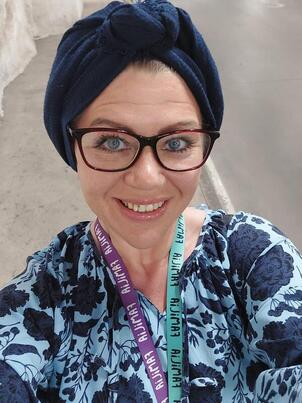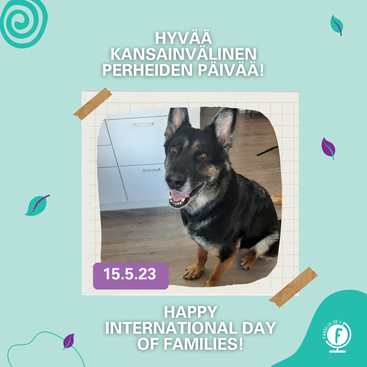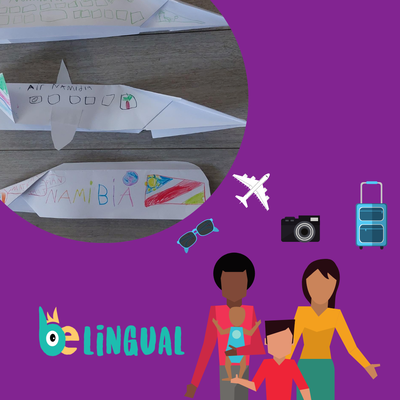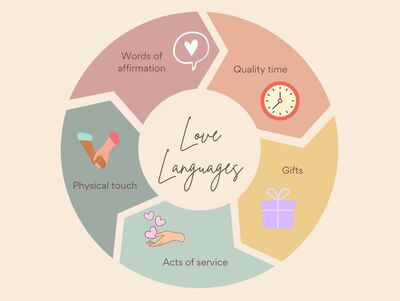|
Kielet ovat kauniita, täynnä omanlaisia rytmejään ja hauskoja sanontoja ja ilmaisuja. Liitämme kieliin tunteita ja muistoja. Kieli on erottamattomasti sidoksissa kulttuuriin ja yhteisöön. Tänään 26.9 kun juhlimme Euroopan kielten päivää, juhlimme kielten ja kulttuurien monimuotoisuutta. Ja syystä! Puhutaanhan Euroopassa noin 225 eri kieltä! Mutta ovatko kaikki nämä kielet saman arvoisia?
Monikielinen lapsi saattaa saada kehuja siitä, että taitaa useampaa eurooppalaista kieltä, jos ne mielletään hyödylliseksi, kuten englanti, espanja tai ranska. Mutta miten suhtaudutaan lapsen monikielisyyteen, jos hänen kotikieltänsä puhuu vain pieni joukko ihmisiä, rajatulla alueella? Tai jos kieli koetaan alempi arvoiseksi koska sitä ei voi käyttää koulussa tai tulevaisuuden työelämässä? Kuinka usein vanhemmat päättävät olla opettamatta vähemmistökieltään lapselleen koska pelkäävät mahdollista syrjintää?
0 Comments
 Kansainvälinen lukutaidonpäivä 8.9. Tänään vietetään Kansainvälistä lukutaidonpäivää. Kuten tiedämme, lukutaito on erittäin tärkeä taito sekä ihmisoikeus. Lukutaidon avulla voimme mm. kehittää sanavarastoa, empatian kykyä sekä parantaa keskittymiskykyämme. YK:n mukaan kuudennes 6–18 vuotiaista maailman lapsista ja nuorista eivät edelleenkään käy koulua ja 14% yli 15-vuotiaista eivät osaa lukea (Suomen YK-liitto 2023). Vaikka lukutaito on kehittynyt vuosikymmenien aikana, maailmassa on edelleen suuria alueellisia eroja lukutaidon osaamisessa. Read below this blog in EnglishTarkoittaako maahanmuuttajaperheestä tuleminen monikulttuurisuutta? Vai saammeko monikulttuurisen identiteetin oppimalla puhumaan useampaa kuin yhtä kieltä tai asumalla tai työskentelemällä ulkomailla?
Lähes puolet perheestäni on aina asunut Ruotsissa. En koskaan pitänyt ruotsin kielestä lapsena, koska en koskaan oppinut sitä. Myöhemmin, kun muutin Isoon-Britanniaan, kesti jonkin aikaa tottua puhumaan englanniksi. Nyt myös 6 lastani ovat monikielisiä ja kulttuurisia. Toisen kielen osaaminen auttaa meitä tulemaan kulttuuritietoisemmiksi ja laajentamaan näköalojamme oman kielemme ulkopuolelle. Toisen kielen oppiminen on verrattavissa toisen identiteetin saamiseen - monikulttuuriseen identiteettiin, jolla on useita etuja sekä henkilökohtaisessa että ammatillisessa elämässämme. Linguistic diversity and multilingualism are not new phenomena. Finland has gone through many language shifts. The languages spoken in the geographical area have changed several times since it was populated at the end of the Ice Age 11,000-13,000 years ago.
The first arrivals spoke an ancient language of which there is little information. After that, most of the population spoke a Proto-Sámic language. About 2,000 years ago, the language was slowly replaced by Finnish as Proto-Finnic speakers travelled from the Ural mountains via Estonia to Finland. Several loan words from the first ancient language are still in use in Sámi, and some even in Finnish, such as nuotio (fireplace) or kontio (bear). I am a mom. A mom in an intercultural family! A mom with a partner and 5 children + a big dog. A family where we speak 3 languages between us, but Not a single person of us can speak all the languages. That is my family, even though not all the children are biologically mine, but mentally they are mine and will always be. I also have a big dog now. It is funny how love has “given” me all these bonuses, because I never wanted many kids, and I am terrified of dogs. Anyway I am in love with my partner and I also got to a point where I appreciate my bonus dog. I see myself as the luckiest ever, to have all my kids. How I was brought up, it is normal to get none, one or two children. Not five!
For Mother's Day in Finland, I would like to share reflections and experiences about the maternity package and neuvola services in Finland. If you make a quick browse online, you will read that ” The maternity package (in Finnish: äitiyspakkaus,) known internationally as the Finnish "baby box," is a kit granted by the Finnish social security institution Kela, to all expectant or adoptive parents who live in Finland or are covered by the Finnish social security system. By neuvola services I refer in this blog to the prenatal care offered by public clinics of the Finnish healthcare system.
What is the paradox that I want to tell? International Workers' Day is meant to celebrate the fellowship between all workers, in Finland and worldwide. For this day, I would like to share my recent personal experience with attempting to change my career. I hope that my experience, and the tools I used to go through it, will strengthen and empower fellow workers, particularly from intercultural families, who struggle with their own work situations.
Throughout my life, I always wanted to be an academic researcher. Already when I finished elementary school, at the age of 12, I asked to write in the yearbook that my dream is to research history and foreign cultures. As soon as I could, I started my academic studies, first in Israel, then a Master’s in Helsinki and a PhD in Turku. Scroll down for Finnish Blog Traveling allows you to introduce the child to his or her other culture and may strengthen his or her desire to learn speaking that culture's language. That's why we have collected some interesting blogs with tips and recommendations related to traveling with a multilingual child. Andrea Breitenmoser first explains in her video blog why traveling with bilingual or multilingual children is worthwhile. "Multilingual travel lesson" teaches, for example, that children's interest and motivation to learn another language can be promoted by demonstrating that language is really useful and necessary by using it in front of them when traveling, and also to highlight it. One blog mentions, among other things, the inclusion of audiobooks on the journey. In one other blog from the below, it is also taken into account that cultural education is benefitting the learning of language. Immersion in a child's second language and its culture and traditions is discussed a lot in these blogs, as it is an important source of motivation and interest for the child.
We most likely all agree that good communication is one of the key factors to any successful relationship. Communication with our partner happens daily, whether it is verbally or non-verbally. We are in constant interaction with other people, especially in our romantic relationships. Now what happens if our ways to think, feel and speak are very different from out partner’s? What if we use words and expressions differently? What if our views, values, practices that are familiar to us seem contrary to the ones our partner has? Differences easily lead to misunderstandings, frustration, disconnection and conflict.
Olivia Maury & Minna SeikkulaReilun ja toimivan yhteiskunnan edellytys on kaikki yhdenvertaisesti tavoittava demokratia – se, että kaikilla on todellisuudessa yhtäläiset mahdollisuudet osallistua esimerkiksi vaaleissa, kuntalais-, alue- ja kansalaisaloitteisiin tai vaikkapa yhdistystoimintaan. Vähemmistöasemassa olevien osallistuminen demokratiaan edistää hyviä väestösuhteita, ulkopuolelle jääminen puolestaan syventää segregaatiota yhteiskunnassa. Siksi on tärkeää, että maahanmuuttaneet ja monikieliset suomalaiset pystyvät osallistumaan yhteiskunnalliseen vaikuttamiseen yhdenvertaisesti. Oikeusministeriön julkaisemassa raportissa “Korjataan maahanmuuttaneiden ja monikielisten suomalaisten demokratiavaje” (2022) etsitään syitä maahanmuuttaneiden ja monikielisten suomalaisten aliedustukseen demokraattisen osallistumisen muodoissa. Aliedustus tarkoittaa, että ulkomaalaistaustaisten osuus vaaleilla parlamentaarisissa elimissä ei vastaa heidän osuuttaan väestöstä, joka puolestaan aiheuttaa demokratiavajetta.
|
blogi - blogAjatuksia ja kokemuksia elämästä kahden kulttuurin keskellä.
Reflections and experiences from the life of intercultural families. kategoriat
All
osallistuToivotamme sinut lämpimästi tervetulleeksi osallistumaan blogiyhteisöömme: lue, kommentoi ja kirjoita!
Kirjoittajina voivat toimia kaikki kahden kulttuurin arkea elävät ja aiheesta kiinnostuneet. Kynnystä kirjoittamiselle ei tule nostaa liian korkealle ja kirjoittaa voi joko omalla nimellä tai nimimerkillä. Blogissa esitetyt näkökannat ja mielipiteet ovat kirjoittajien omia, eivätkä edusta Familian kantaa. Kahden kulttuurin arki on itsessään kiinnostavaa ja siitä kirjoittaminen voi avata myös itselle uusia näkökulmia! Blogikirjoituksia voi tarjota sähköpostitse (info@ familiary.fi) tai yhteydenottolomakkeen kautta. Lopullisen valinnan julkaistavista jutuista tekee Familian henkilökunta. Tervetuloa mukaan! participate!We warmly welcome you to participate in our blog community: read, comment, and write!
Anyone who lives and works in the world of intercultural families and is interested in the topic is welcome to contribute. The threshold for writing should not be too high, and you can write either under your own name or under a pseudonym. Keep in mind that the views and opinions expressed in the blog are those of the authors and do not represent the position of Familia. The everyday life of intercultural families is interesting and writing about it can also open new perspectives for you! Your story matters and helps to raise awareness about the opportunities and challenges within intercultural families. Blog contributions can be submitted by e-mail (info@ familiary.fi) or via our contact form. Final selection and edition of the stories to be published will be conducted by our staff. Welcome to join us! |
|
|
© Familia 2024






 RSS Feed
RSS Feed

